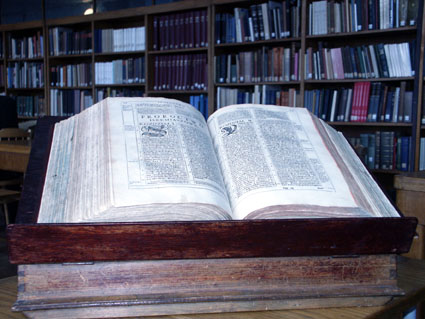|
In the humanist process of finding order and sense of existence and among the hardships of discovering the lost identity, the Bible doubtlessly plays a most exceptional role as a great literary code and the unique Book of Books that successive generations of writers and poets enter into dialogue with. Constant references to the Writings are possible thanks to this specific polysemy of the Biblical Word.
Northrop Frye claims that one of the most common experiences of reading the Bible is the feeling that there are ever further discoveries that may be made within the same verbal structure. Among the numerous manners of referring to the Bible, rhymed paraphrases of the individual books became especially popular in the 17th century, with the reasons for this popularity to be found in cultural, religious, and socio-political factors. Review and interpretation of these paraphrases leads to answering the questions about the writers? fidelity towards the Bible and the scale of divergence from the canonical version. These very paraphrases are a testimony to how the Holy Scriptures were perceived and commented upon by writers, explaining why they fascinated the writers and received an ?update? in yet another period in Polish culture, helping to regain the lost identity: both social and individual. Reading 17th-century paraphrases of the Old Testament we see how the contemporary writers used the Bible as a filter to look at both individual moral dilemmas and confusion imminent in their world: we see those problems interpreted and woven into the course of Biblical narration. Baroque literature becomes deeply rooted in the Bible, yet the process is bi-directional in its nature: the Bible finds its place in literature whereas literature finds its absolute meaning in the Bible ? the book whose ignorance would render all the attempts of understanding the nature and character of European culture unrealistic. Paraphrases of story lines and themes drawn from the Holy Scripture, made abundantly in the 17th century, were a testimony to the widespread fascination in the Book of Books, and at the same time to the already mentioned polysemy of the invariably true Word of the Bible, being the highest moral authority, which men invoked in search of the most fundamental truth about the sense of own human nature and existence |

|